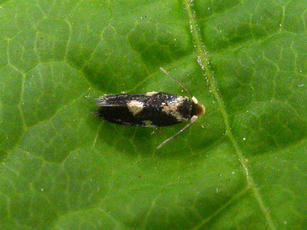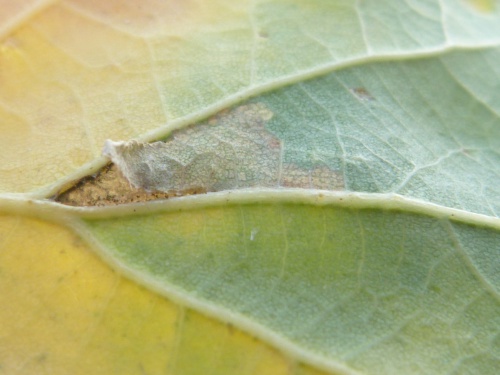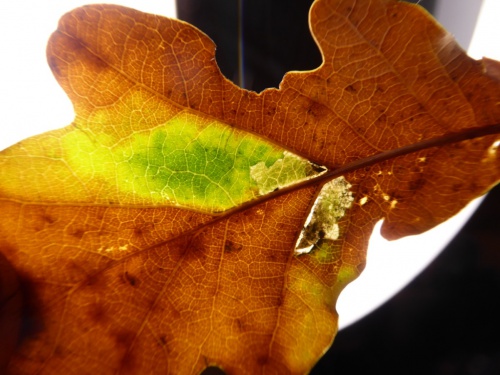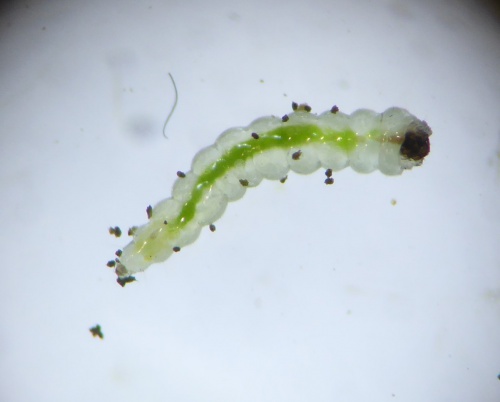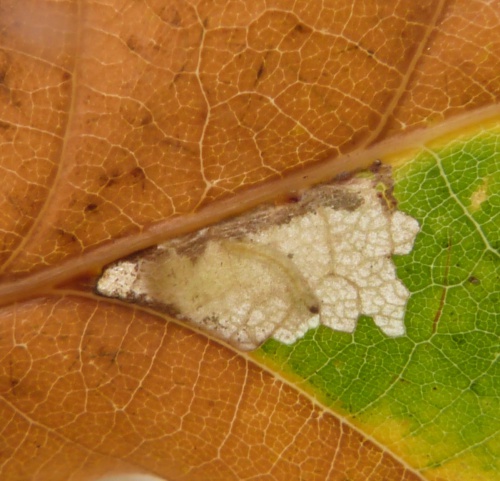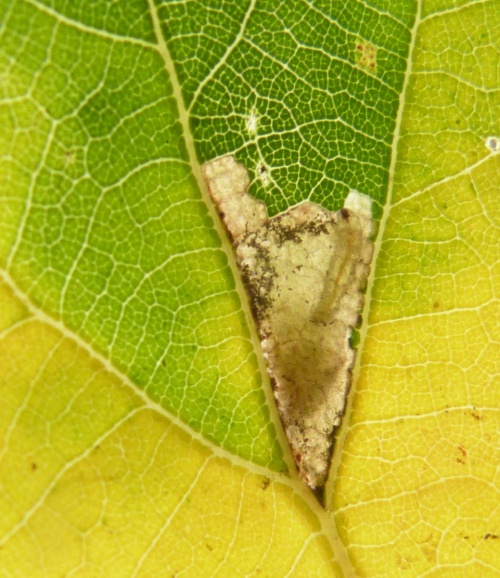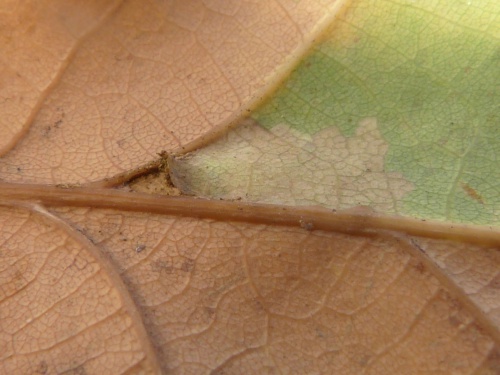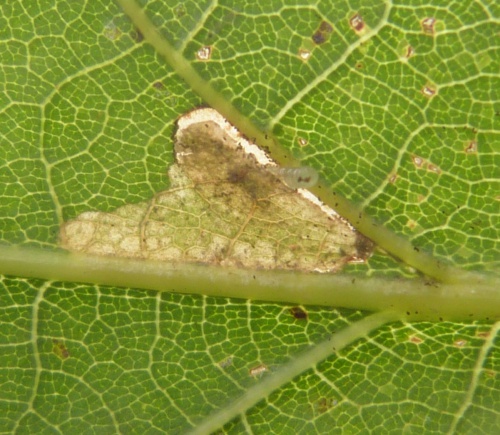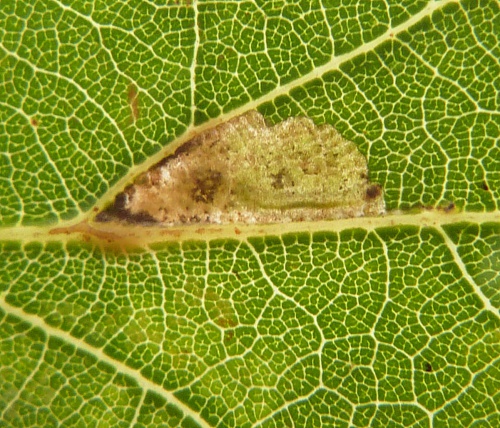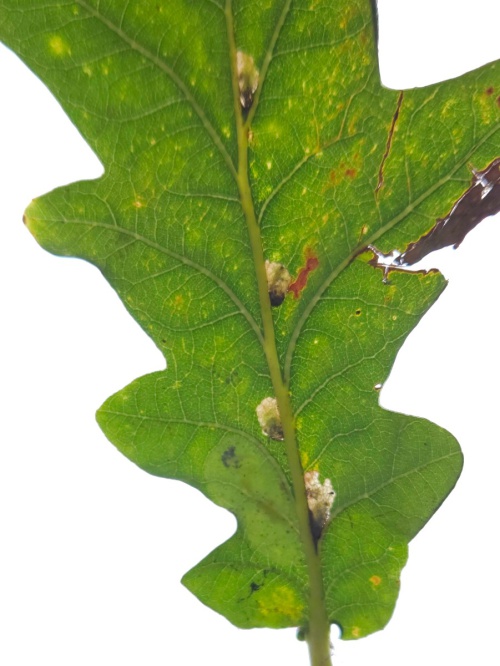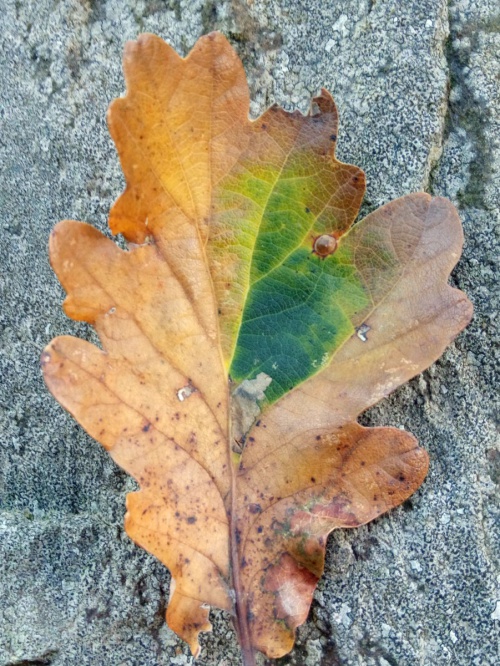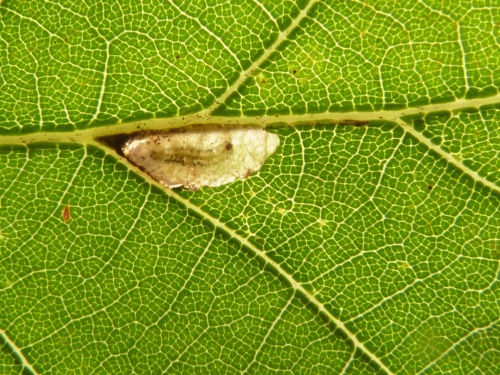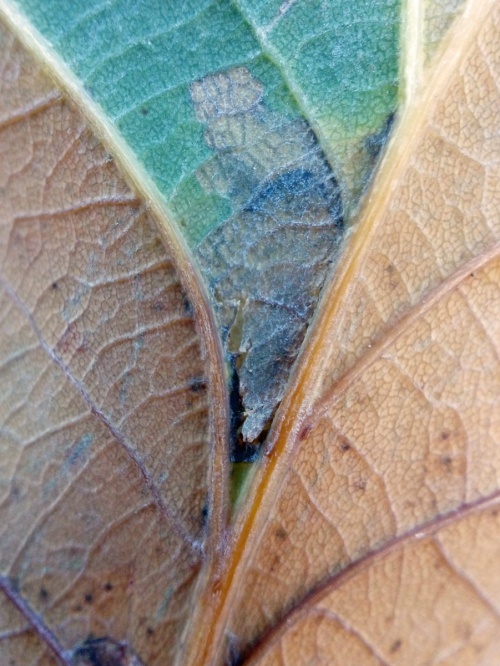Ectoedemia subbimaculella
Spotted Black Pigmy
Wingspan 5 to 6 mm. The adults are similar to E. heringi but otherwise quite distinctive, with two creamy spots and a creamy basal patch on a violet-tinged blackish forewing.
The larvae mine Oak leaves, initially in a gallery following a vein, then creating a triangular blotch between vein and midrib. It can be distinguished from the similar mines of E. heringi by the presence of a slit or lose triangular flap in the lower epidermis which allows frass and water to pass. The larva has a dark head, and continues to feed in 'green islands' in fallen oak leaves.
Other Ectoedemia on oak
Photograph underside of leafmine to see open slit or flap fhat allows frass to fall out.
Around Oak.
Adult: May to July.
Commonest in south-east England, the distribution expands north and westwards. In the Butterfly Conservation’s Microlepidoptera Report 2011 this species was classified as common.
Increasingly well recorded in Leicestershire and Rutland, usually from leafmines on Oak.
Leicestershire & Rutland Map
Enter a town or village to see local records
MAP KEY:
Yellow squares = NBN records (all known data)
Coloured circles = NatureSpot records: 2025+ | 2020-2024 | pre-2020
UK Map
Species profile
- Common names
- Spotted Black Pigmy
- Species group:
- Moths
- Kingdom:
- Animalia
- Order:
- Lepidoptera
- Family:
- Nepticulidae
- Records on NatureSpot:
- 95
- First record:
- 07/11/2010 (Russell, Adrian)
- Last record:
- 20/11/2025 (Smith, Peter)
Total records by month
% of records within its species group
10km squares with records
The latest images and records displayed below include those awaiting verification checks so we cannot guarantee that every identification is correct. Once accepted, the record displays a green tick.
In the Latest Records section, click on the header to sort A-Z, and again to sort Z-A. Use the header boxes to filter the list.


